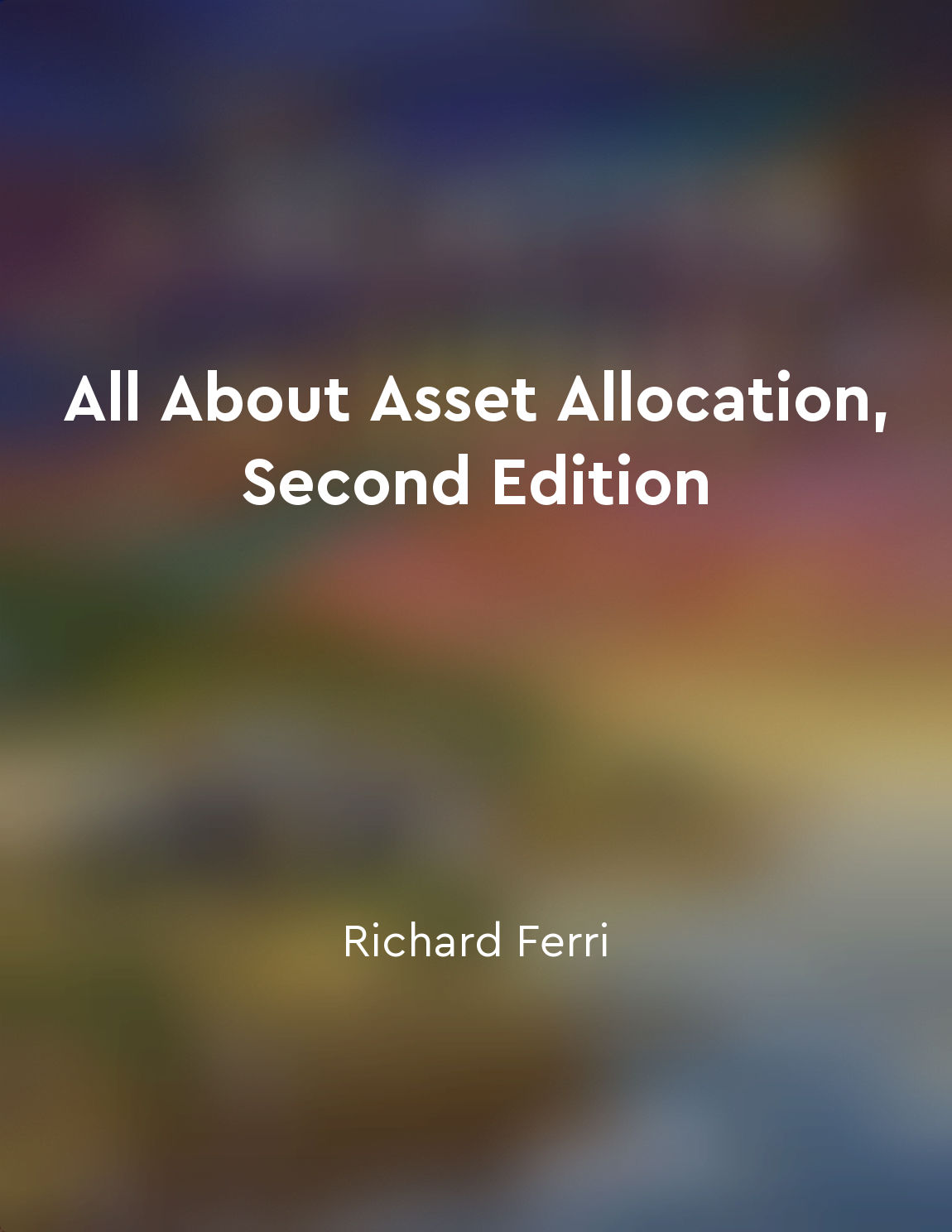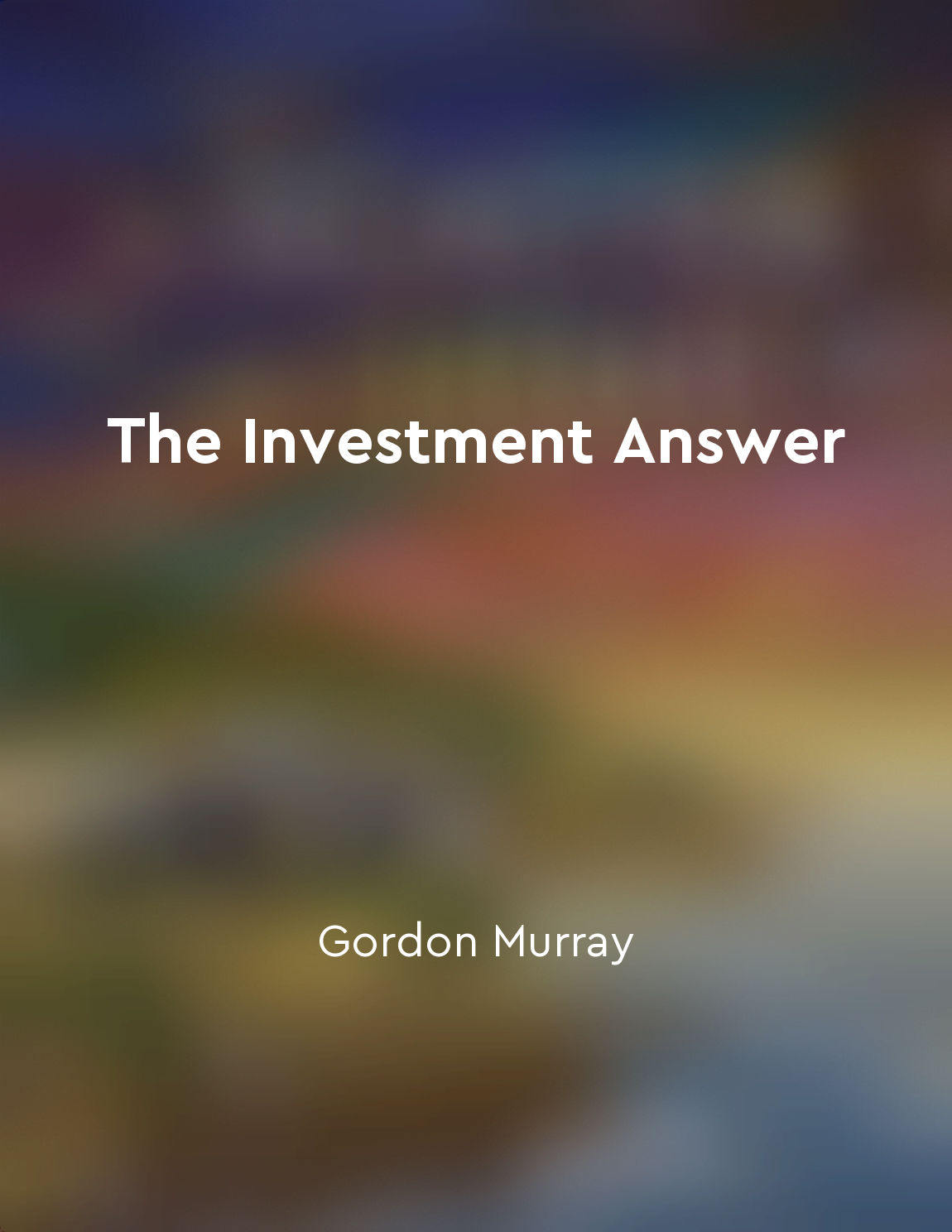Audio available in app
Automate your investments from "summary" of The Only Investment Guide You'll Ever Need, Revised Edition by Andrew Tobias
One way to make investing a habit is to automate it. By setting up an automatic transfer from your checking account to your investment account each month, you ensure that you are consistently putting money into your investments without having to remember to do so manually. This takes the guesswork out of the equation and makes investing as easy as paying your bills. Automating your investments also helps you take advantage of dollar-cost averaging. This strategy involves investing a fixed amount of money at regular intervals, regardless of market conditions. When you automate your investments, you are essentially dollar-cost averaging without having to think about it. This can help smooth out the highs and lows of the market and potentially lower your overall cost per share. Another benefit of automating your investments is that it forces you to live within your means. By setting up a recurring transfer to your investment account, you are effectively paying yourself first before you have a chance to spend the money elsewhere. This can help you prioritize your long-term financial goals over short-term spending impulses. In addition, automating your investments can help you avoid emotional decision-making. When you manually make investment decisions, you may be swayed by market fluctuations or headlines in the news. By automating your investments, you remove the emotional element from the equation and stick to your long-term investment plan.- Automating your investments can help you make investing a consistent and effortless part of your financial routine. By setting up automatic transfers, you can take advantage of dollar-cost averaging, live within your means, and avoid emotional decision-making. This simple strategy can help you build wealth over time without having to constantly monitor the market or second-guess your investment decisions.
Similar Posts
Rich dad teaches financial education
The concept of financial education is a crucial element in the journey to financial independence. In the book 'Rich Dad Poor Da...

Avoiding market timing can lead to better longterm investment outcomes
Market timing refers to the practice of moving in and out of investments based on predictions about the future direction of the...

Money is a psychological concept that impacts every aspect of our lives
Money, as a concept, exerts a profound influence on our lives, shaping our decisions, perceptions, and behaviors in ways both o...
Embrace failure as a learning opportunity
The idea of seeing failure as a chance to learn and grow is a central theme in the teachings of Rich Dad Poor Dad. Instead of v...
Poor dad focuses on earning a higher salary
The poor dad, he's always focused on one thing - earning a higher salary. He believes that if he works hard enough and climbs t...
Make informed decisions by conducting thorough research
To navigate the complexities of the financial markets and build a successful investment portfolio, one must be diligent in cond...
Risk is what you don't see
Risk is what you don't see. It's what you ignore when you're convinced that your future is going to be exactly like your past. ...
Financial independence is attainable through intentional choices
Achieving financial independence may seem like an unattainable dream, especially in a world filled with consumer culture and so...

Stay disciplined during market fluctuations
In today's fast-paced investment world, it is crucial to stay disciplined during market fluctuations. While it may be tempting ...
Focus on industries with longterm growth potential
When considering where to invest your hard-earned money, it is crucial to focus on industries that have the potential for long-...

